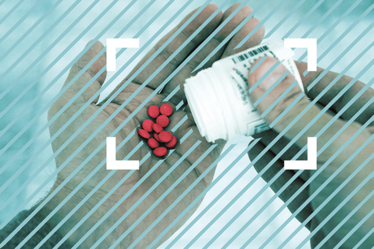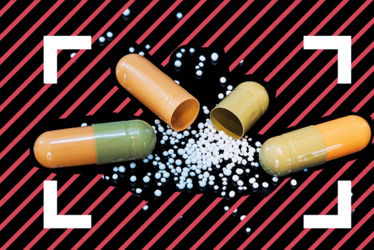Bringing API Manufacturing into Focus: Lessons Learned with Brian Chekal
Brian Chekal wears two hats; one at Pfizer, where he is a senior principal scientist, and another at the American Association of Pharmaceutical Scientists (AAPS), where he chairs the Chemical and Biological API Manufacturing Technology focus group.
Fun teachers and practical internships can foster lifelong interest in science
When I was younger, I had a fantastic teacher called Mr Signore who had a wonderfully captivating way of bringing science to life. He would hang a giant pendulum from the classroom ceiling, hold the pendulum at the tip of your nose, and tell you to stand very still – then he’d let go! On the return swing, the pendulum would come right up to your nose, but not quite reach. With fun lessons like this, I grasped the basic concepts quickly and learned to love science. As I moved into high school, I became really interested in chemistry, leading me to do a degree and a PhD in chemical engineering.
In the summer between my undergraduate and post-graduate degrees, I landed an internship at one of Merck, Sharp & Dohme’s manufacturing sites – an awesome experience! The company was trying to streamline a crystallization process, and after a few lessons and some background reading, I was tasked with trying to improve the efficiency of this procedure. It was frustrating at times because a lot of the paths I went down led nowhere, but despite that I enjoyed the methodical approach. When I first started out in the pharma industry, I already had an interest in process development – and it led to what I’m doing today at Pfizer as a senior principal scientist focused on crystallization process development. My Merck internship was in manufacturing support, but now I’m working at an earlier stage, developing the manufacturing process in the lab prior to transferring it to the commercial manufacturing site. We develop new processes rather than trying to modify existing ones, but the approach is similar.
Volunteering brings rewards and satisfaction
I became involved with AAPS thanks to Cindy Oksanen – one of the senior directors at Pfizer. Cindy was involved in an AAPS section leadership at the time and mentioned that the Chemical API Manufacturing Technology focus group was looking for people to join its committee. I volunteered to serve in the group and started out as a committee member before working my way up to Chair. AAPS as a whole tends to be rather heavily drug product-centric, so we try to make our focus group a center of gravity for all the people who are more interested in the drug substance side of pharmaceutical sciences. We spend a lot of our time discussing different technologies and scientific approaches for API manufacturing processes. It’s fairly small compared to other AAPS focus groups. There are around nine of us on the steering committee and the extended core of the focus group comprises around 20 people, but I’m proud of what we do. In the 2015 AAPS Annual Meeting, we had five sessions in the annual meeting program – quite a feat for a small group.

And it also shows the keen interest the industry has in enhancing API manufacturing processes.
One of our ambitions is to produce more webinar-based content. Not everyone can attend the annual meeting and, in any case, such sessions are only transient; webinars, by contrast, allow participation by people who can’t travel and can be made accessible on a website for years. Even if you attend a meeting, it’s helpful to have the option of revisiting the same topic on a website at a later date. One very successful webinar for us was on the selection of solid forms for small molecule APIs, covering topics such as how to choose the right salt or co-crystal for development and commercialization. Solid form selection has a number of implications on the development of a new drug and requires detailed scientific understanding. We later followed it up with a webinar on the development of crystallization processes designed to achieve the desired quality attributes of the selected solid form. Sharing knowledge and learning is an important goal of our group.
Small molecules and large molecules share common ground
Originally, our group was very small-molecule centric but, based on feedback from AAPS leadership, we’ve since rebranded and expanded to cover large molecule APIs. Although the technical aspects of manufacturing development clearly differ between small and large molecules, the overall methodologies are pretty similar.For example, at the AAPS National Biotechnology Conference in Boston in 2016, we co-sponsored a session on the practicality of eliminating visible particles in drug products, which is a very important topic in the biologicals arena. It’s also an important topic for small-molecule drugs, especially when it comes to ocular formulations or oral solutions. The source of the particles may be different, but the investigation and control strategy implementation are similar; a great deal of learning can be applied from one side to the other.
There are also a number of drugs that consist of both small and large molecules, such as antibody-drug conjugates (ADCs). ADCs are a hot topic in the industry right now, and we are looking to have more programing in the area of manufacturing of ADCs in years to come.
Continuous processing is a big topic, but we’re not there yet
Another hot topic in the industry, which I am hearing about both at AAPS and during my day job at Pfizer, is continuous processing. The advantages of continuous processes have been understood for a long time and there has been intense interest in this field for the last eight to ten years. Today, we’re seeing increased interest because of advances in the science and technologies. The FDA is an advocate of continuous processing and big companies, such as Eli Lilly, GlaxoSmithKline, Novartis and Pfizer, are pursuing the field with interest. I firmly believe the topic will continue to gain momentum; however, moving from batch processing to continuous processing requires changes in a number of systems and poses technical challenges. In particular, we need more work on process control to really bring continuous processing to fruition. There is also the question of skillset – few process engineers really understand how to develop a continuous process.
One of the challenges on an industry level is the fact that small-molecule manufacturing is very mature, with a large amount of capital invested in traditional manufacturing set ups. It’s hard to change this infrastructure. It’s a very different picture in terms of manufacturing biological APIs, where there is more investment potential; with new facilities comes the opportunity to deploy cutting-edge manufacturing technologies.
Whatever the rate of adoption, I do know that continuous processing will be discussed extensively at AAPS and elsewhere in the industry for many years to come...
The growing power of computers will bolster manufacturing science
The continuing development and application of computational modeling tools is a very exciting area right now. At one end of the spectrum, you have very simple, but powerful, physical property models that describe vapor-liquid equilibria for predicting distillations or solid-liquid equilibria for predicting solubility. There are also mathematically complex computational fluid dynamic tools or population balance modeling tools for performing crystallization modeling. And though the tools have been around for a while, their application has been made simpler and more systematic – you no longer need to be an expert user to reap the benefits. Systems are also a lot faster than they used to be and, although this may be because of the general increase in computer speed, the overall result is much more efficient process development. Scientists can perform initial laboratory experiments, feed the data into the computational models and then run a whole series of experiments in silico; the output from the model suggests additional lab experiments, with the whole iterative process dramatically reducing development time.
Brian Chekal’s Recommended Reading
- MD Ticehurst, I Marziano, “Integration of active pharmaceutical ingredient solid form selection and particle engineering into drug product design”, J. Pharm. Pharmacol., 67, 782-802 (2015). PMID: 25677227
- A Newman, “Specialized Solid Form Screening Techniques”, Org. Process Res. Dev., 17, 457-471 (2013).
- N Variankaval, AS Cote, MF Doherty, “From form to function: Crystallization of active pharmaceutical ingredients”, AIChE Journal, 54, 1682−1688 (2008).

Collaboration and networking promote learning
Being part of a focus group is a tremendously rewarding experience – and a lot of fun. I really enjoy having the opportunities to mentor novice scientists outside of Pfizer, especially those who are early in their API manufacturing career. The focus group has a real mix of people, from scientists who are finishing up their PhDs and keen to learn more, to seasoned industry folk and academics. Working with academics has been very interesting. Challenges in academia are different to those in industry, but at the same time we often have to solve similar problems in our daily roles. In that sense, much academic research is very relevant to industry, and it’s really exciting to hear about things at the leading edge that may have industrial applications. Academics are able to go off on exploratory projects to answer interesting questions, which means there’s always a possibility that they will come across something really fantastic.

Over the years, we’ve had some really great discussions in the group. When we all come together to tackle problems, it’s amazing what we can achieve.
You can find out more about the Chem Bio API Manufacturing Technology Focus Group at www.aaps.org/API_Manufacturing_Technology
Brian Chekal is a senior principal scientist at Pfizer and chair of the Chemical and Biological API Manufacturing Technology focus group at the American Association of Pharmaceutical Scientists (AAPS).



















